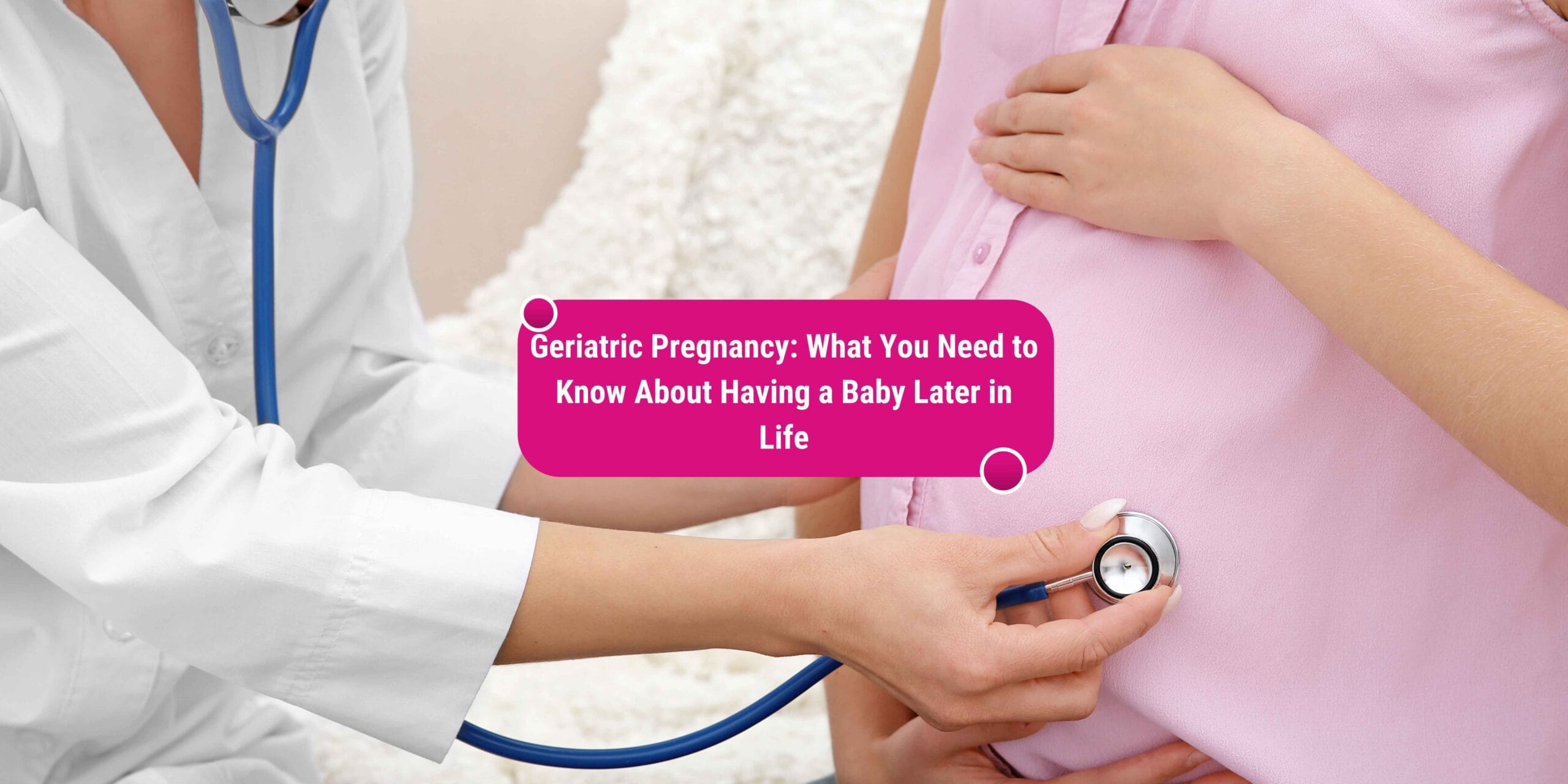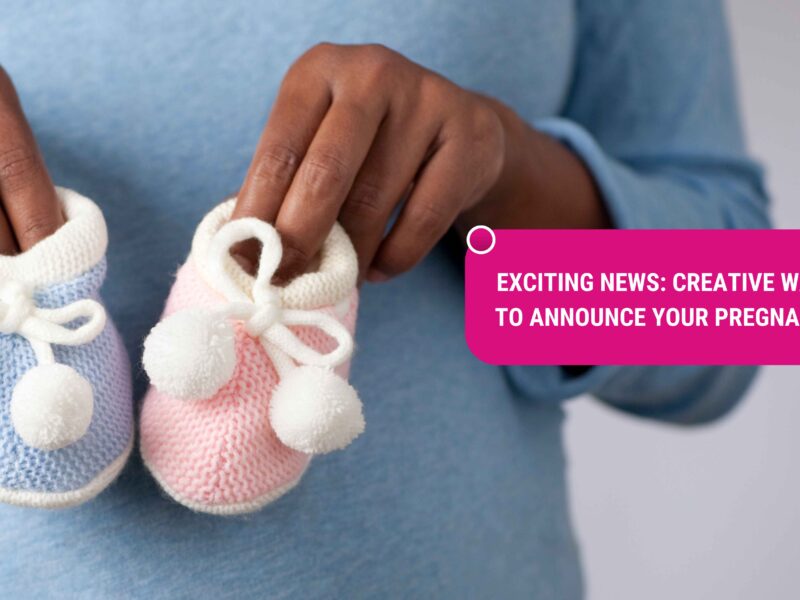Childbirth later in life is no longer unusual. As the age at which women are starting families continues to increase, many women are experiencing pregnancies after 35 years of age, and often well into their 40s. This increasing trend of older women having children has obvious implications not only for the child’s development but also for the mother’s physical, emotional, social, and medical well-being. Adverse outcomes in geriatric pregnancy result primarily from a combination of medical and fetal conditions and the changes that occur as part of the physiological aging process. Advanced maternal age is associated with an increase in the rate of chromosomal abnormalities, miscarriage, congenital anomalies, antenatal fetal death, induction of labor, cesarean delivery, post-mature gestations, preterm births, low birth weights, and medical disease complications.
Recently, there has been a worldwide trend in delaying childbirth because of an increase in educational and professional opportunities. With age, there is a decline in fertility for both males and females. As far as females are concerned, the quality of oocytes and the number of oocytes in the ovary decrease with age. Besides a decrease in fertility, there is also an increase in the chances of obstetric, medical, and chromosomal complications during pregnancy for both the mother and offspring. The purpose of this review is to provide essential information about geriatric pregnancy to elderly women who are planning to conceive so that more informed choices, quality of life, and better care are available to them. In conclusion, geriatric pregnancy is associated with increased maternal and fetal complications and yet may have favorable and advantageous outcomes, suggesting that a planned pregnancy under medical surveillance and with targeted intervention can have a positive outcome.
Defining Geriatric Pregnancy
In medical parlance, a pregnancy occurring at age 35 or older is called geriatric pregnancy. We recognize that this is a rapidly evolving area of discussion as societal norms are changing, and definitions and connotations related to womanhood and old age are in flux. New technological advancements have made it entirely possible for women to conceive later in their lives. In this subtopic, we define various terms related to old motherhood, identify the ages at which pregnancy starts to be called risky, and illustrate the latest statistics about pregnancy in the older age groups. The discussions throughout this chapter provide a framework for understanding the implications of getting pregnant after the biological clock has started to wind down, bearing in mind the capital importance of accurate information about population trends.
It has been mentioned at the beginning of the chapter that the term “geriatric pregnancy” may cease to carry inherent connotations of perinatal risk as society evolves. Before that happens (if it does), we need to define what exact age a mother-to-be needs to reach to be called “old” or geriatric with the connotations of higher-risk pregnancy. Consequently, the threshold has been moving up, from 33 in the late 1800s to 35 in the mid-1900s. It is hard to draw a solid line between “young” and “old” at this point in time, as the definition is influenced by culture, time, religion, self-identity, mental attitude, and other very individual factors. The term “geriatric pregnancy” and other terms such as “old pregnancy,” “advanced pregnancy,” “older pregnant woman,” or “pregnancy of advanced maternal age” have been around since about the mid-20th century. All these terms carry the same meaning and are interchangeable. We have used these terms interchangeably throughout this chapter.
Factors to Consider Before Conceiving
Geriatric pregnancies (pregnancies that occur in women aged 35 and older) have been steadily rising and becoming more common in Australia and the rest of the developed world. There are many reasons why women today are choosing to delay having children, with some of the most popular being advancing careers, financial costs, and finding the right partner to start a family with. Being a geriatric mother has its challenges, but it is also a rewarding and positive experience for many women. While not a definitive guide, this comprehensive exploration will consider some of the biggest considerations for women considering conceiving, or who may have found themselves with a surprise pregnancy later in life.
Being old enough to be a grandmother can present some major challenges when it comes to growing and birthing a brand-new human. It’s important to have open and honest conversations with not only a doctor but also a partner or support person while going through preconception counseling. They can help you assess whether your body, relationship, and life circumstances can handle the major changes that come with a new baby. There are multiple factors to consider during this uncertain time of our lives, including your own health and readiness. Limiting factors such as personal health can include existing conditions such as obesity, physical fitness, diet, whether you are a smoker, and your mental health. Although not determinative, these factors are vital to raise in conversations to discuss in preconception counseling. A pre-pregnancy plan should be made with doctors before beginning any conception attempts so all important elements can be taken into account. Talk to your doctor or a qualified fertility specialist about your worries, and remember that as an individual, if you feel ready to become a parent, it’s all about what’s right for you. Don’t be bullied into parenthood if you’re not ready. Another good reason for scheduling a chat with your GP is to gain an understanding of the fertility factors involved. Menopause occurs for most women between the ages of 45 and 60, at an average age of 51 years.
Reproductive fertility begins to decline in women, starting to lower noticeably from the age of 35. The ovaries have a lifetime supply of eggs at birth, with most women losing around 1,000 eggs monthly through their menstrual cycles. Reproductive fertility is also influenced by a range of conditions and other hormones. Women are born with all the eggs they will ever have and unfortunately, we can’t make new ones. A reduced quantity and quality of eggs can mean that natural conception becomes less likely. For older women who are not ovulating frequently, the use of fertility treatments to conceive may be realistic; however, it remains very unpredictable and stressful. Help is available if you are struggling to conceive, but it’s still important to factor in realism. Being informed about the potential for fertility complications, treatment needs in pregnancy, and any possible chromosomal and structural defects is one of the best things people can do for themselves in the early stages of life planning. Socio-economic factors are also important in deciding whether it is the right time in your life to have a baby, alongside your family and personal situation. Factors such as the knowledge of support services, a stable financial income, flexible working hours, and the availability of a trusted support network are all necessary considerations. Issues such as maturity and experience are other factors to consider, as often, mothers at older ages have more flexibility to choose when to return to the workforce, as they have had the time to develop their careers more. Balancing the rigors of the workforce with the constraints and temperaments of a new baby is difficult for every new mother, and advice should be sought at a timely opportunity.
Risks and Complications
Advanced maternal age poses certain risks and complications during pregnancy and childbirth, such as pre-existing medical conditions that can become worse when a woman is of advanced maternal age. This may include: hypertension, obesity, polycystic ovary syndrome, and gestational diabetes. Miscarriage is more likely when a woman is pregnant past the age of 35. Statistically, a woman faces a 20 percent chance of miscarriage at age 35 and a steeper climb to 30 percent at age 40. Maternal aging is also associated with an increased risk of chromosomal abnormalities, including Down syndrome. The risk of delivering a child with Down syndrome increases from 1 in 400 at age 35 to 1 in 100 at age 40, and to 1 in 30 at 45 years old. There are also risks to psychological and emotional health during pregnancy for older mothers and their partners, including concerns about health risks to the developing child. Finally, older expectant mothers are at an increased risk of complications during labor and delivery, including assisted birth or having a cesarean section.
If you are planning a pregnancy at an older age, your team of care providers will probably watch you more closely than a younger person to monitor for complications and treat them if they happen. For instance, special blood tests and ultrasounds are available to screen specifically for Down syndrome and other trisomies. You might be eligible for these tests after the age of 35. If you have a pre-existing medical condition like diabetes or hypertension, your care provider will likely want to have that under control before you get pregnant. Women with pre-existing health conditions should talk to a doctor before trying to get pregnant to make sure they are safe from miscarriages and pre- and post-natal complications. You may need to see a specialist. A referral can usually be obtained through your family doctor.
Medical Management and Prenatal Care

It is important to seek regular care throughout a geriatric pregnancy. Starting with your healthcare provider, you should have a full examination, including blood work and prenatal testing. Regular prenatal check-ups are also necessary, involving regular measurement of blood pressure. Along with these regular check-ups, screenings are performed throughout pregnancy. For both the pregnant patient and their developing fetus, potential complications are monitored and appropriate treatments are considered.
There are medical interventions to help support a geriatric pregnancy and manage complications. A variety of procedures or treatments can help minimize the increased risks faced by the pregnancy’s mother and baby. Making certain dietary modifications or increasing levels of physical activity may also help avoid complications. Your healthcare provider can also instruct you about the need for additional vitamins and minerals, when you should stop therapy and what nicotine exposure is necessary, and how to maintain a healthy lifestyle. To develop a personalized prenatal care plan, it is important for you and your healthcare provider to work together. This plan should take into account your lifestyle and identify whether you may benefit from extra support along the way. Your healthcare provider may also recommend you consult with a certified nutritionist to examine your eating habits. Discussing your finances and family dynamics with a financial specialist, social worker, or counselor may be beneficial. Talking with a counselor or a psychologist about your emotions, thoughts, and experiences related to your pregnancy and parenting commitments may also be helpful. A grief specialist may help couples who have experienced multiple pregnancy losses. Additionally, laboratories and medical centers are working on screening possibilities that are more specific to maternal age along with the possibility of amniocentesis to test cell-free DNA.
In conclusion, the complexity of motherhood has shifted to encompass an even wider array of choices, outcomes, and pathways. Women choosing motherhood later in life deserve deep respect, compassion, and comprehensive medical care that respects their choices, educates them on the risks, and empowers them with treatment and respect. Geriatric pregnancy is a path inherently rife with complexity, and we hope the above discussion has provided a clear sense of what to expect for women considering motherhood in their 40s and beyond. Geriatric pregnancy is complicated, multifaceted, and demanding of healthcare resources, emotional energy, and the support of loved ones. Many of these important and often undiscussed realities of geriatric pregnancy can have their severity mitigated through advances in preconception counseling and prenatal care. The healthcare providers of the future must learn to speak with and best support women who are eager to start families or add to them later in life. It is the responsibility of the present and future cohort of medical professionals to support and advocate for transparent and evidence-based social policies that are advantageous for would-be and seasoned mothers. Older women deserve dignified support and conversation around their consideration of motherhood and should be the resounding authorities on the timing and size of their families in light of acquired wisdom and accrued capabilities. In conclusion, the miracle of motherhood either is or is not a concept exclusive to the young, depending on the inspired intention of the woman in her heart, informed by the reading of this lifetime amidst our support.



